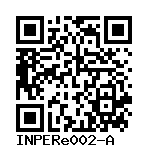Amicqui-2
INPERe002-A
General
Cell Line |
|
| hPSCreg name | INPERe002-A |
| Cite as: | INPERe002-A (RRID:CVCL_UL75) |
| Alternative name(s) |
Amicqui-2
|
| Cell line type | Human embryonic stem cell (hESC) |
| Similar lines | No similar lines found. |
| Last update | 17th November 2023 |
| User feedback | |
Provider |
|
| Generator | Instituto Nacional de Perinatología (INPER) |
External Databases |
|
| Cellosaurus | CVCL_UL75 |
| Wikidata | Q94318021 |
| BioSamples | SAMEA114568107 |
General Information |
|
| Publications | |
| * Is the cell line readily obtainable for third parties? |
Yes Research use: allowed
Clinical use: not allowed
Commercial use: not allowed
|
Donor Information
General Donor Information |
|
| Sex | female |
Phenotype and Disease related information (Donor) |
|
| Diseases | No disease was diagnosed.
|
External Databases (Donor) |
|
| BioSamples | SAMEA114568108 |
Ethics
| Was the embryo established purely for research purposes? | No |
| Have both parents consented to the use of the embryo for ESC derivation? | Yes |
| Has informed consent been obtained from the donor of the embryo/tissue from which the pluripotent stem cells have been derived? | Yes |
| Was the consent voluntarily given? | Yes |
| Has the donor been informed that participation will not directly influence their personal treatment? | Yes |
| Can you provide us with a copy of the Donor Information Sheet provided to the donor? | Yes |
| Do you (Depositor/Provider) hold the original Donor Consent Form? | Yes |
| Please indicate whether the data associated with the donated material has been pseudonymised or anonymised. | anonymised |
| Does consent explicitly allow the derivation of pluripotent stem cells? | Yes |
| Does consent prevent CELLS DERIVED FROM THE DONATED BIOSAMPLE from being made available to researchers anywhere in the world? | No |
| How may genetic information associated with the cell line be accessed? | No information |
| Will the donor expect to receive financial benefit, beyond reasonable expenses, in return for donating the biosample? | No |
| Has a favourable opinion been obtained from a research ethics committee, or other ethics review panel, in relation to the Research Protocol including the consent provisions? | Yes |
| Name of accrediting authority involved? | Ethics Research Committee of the National Institute of Perinatology |
| Approval number | INPER 212250-21071 |
hESC Derivation
| Date of derivation | 2015-05-31 |
| Supernumerary embryos from IVF treatment? |
Yes
Separation of research and IVF treatment?
Yes |
| PGD Embryo? |
No |
Culture Conditions
| Medium |
Other medium:
Base medium: DMEM/F-12
Main protein source: Knock-out serum replacement Serum concentration: % |
Characterisation
Analysis of Undifferentiated Cells
| Marker | Expressed | Immunostaining | RT-PCR | Flow Cytometry | Enzymatic Assay | Expression Profiles |
| NANOG |
Yes |
|||||
| POU5F1 (OCT-4) |
Yes |
|||||
| SOX2 |
Yes |
|||||
| TRA 1-60 |
Yes |
|||||
| CDH1 |
Yes |
Morphology pictures
Amicqui-2a.tif
Representative phase-contrast micrograph of Amicqui-2 hESC on iMEF feeder layer.
Differentiation Potency
Genotyping
Karyotyping (Cell Line) |
|
| Has the cell line karyotype been analysed? |
Yes
|
Other Genotyping (Cell Line) |
|


Login to share your feedback, experiences or results with the research community.